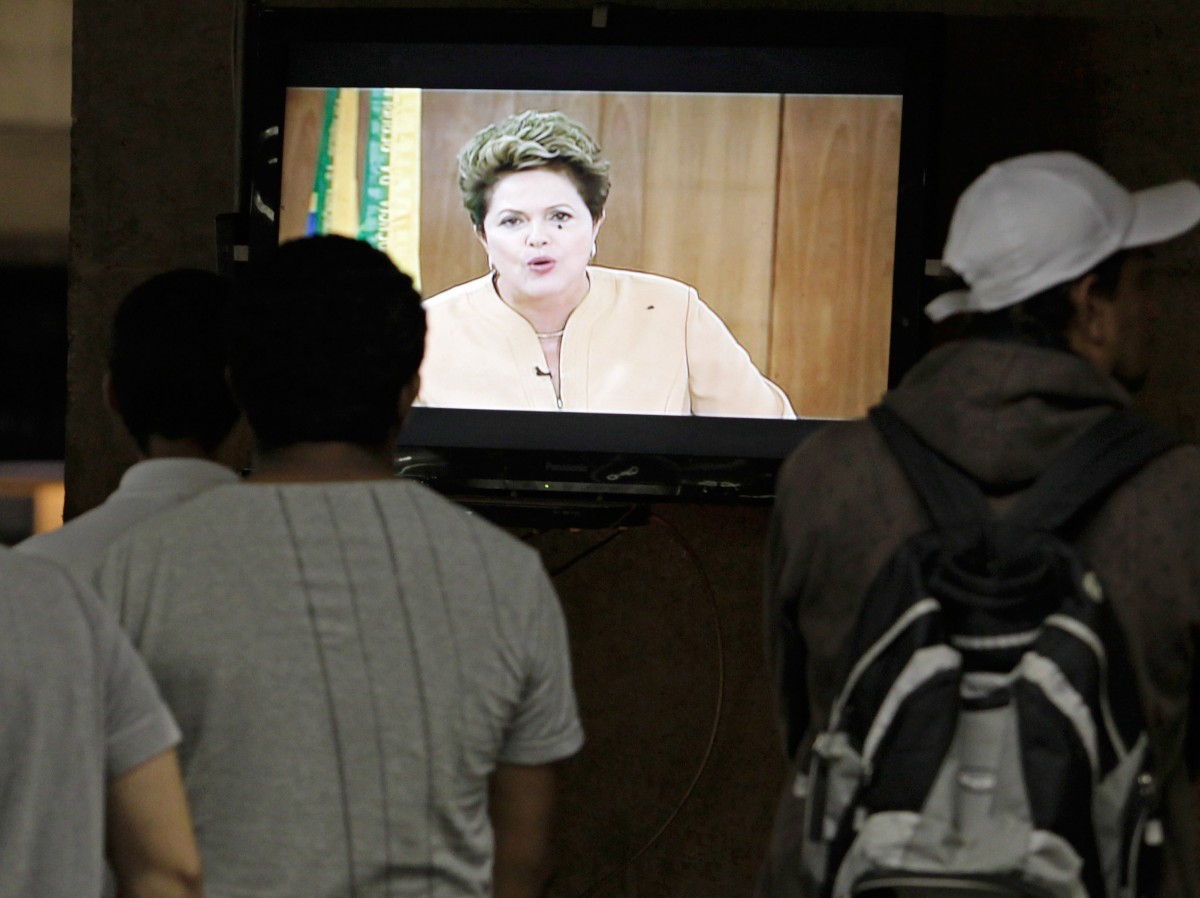
SAO PAULO — Brazilian President Dilma Rousseff unveiled a series of reforms on Friday night in an attempt to put an end to days of nationwide protests against government corruption and poor public transportation, healthcare and education.
In an address broadcast on TV and radio, Rousseff said she had an obligation to listen to the voices of the people on the streets, but that a dialogue needed to be established between protesters and the government.
“I’m going to meet with the leaders of the peaceful protests,” Rousseff said. “I want institutions that are more transparent, more resistant to wrongdoing.”
“It’s citizenship and not economic power that must be heard first,” she said. “We need to oxygenate our political system … and make it more transparent.”
She went on to say that she and the rest of her government would create a new plan for public transportation and reiterated her previous plan for Congress to invest all oil revenue royalties in education. She also noted that thousands of foreign doctors would be brought in to areas that lack physicians in order to improve Brazil’s national health service, SUS.
Rousseff, a former Marxist rebel who fought against Brazil’s 1964-1985 military regime and was jailed for three years and tortured, then referred to earlier sacrifices made by her countryto free it from the dictatorship.
“My generation fought a lot so that the voice of the streets could be heard,” Rousseff said. “Many were persecuted, tortured and many died for this. The voice of the street must be heard and respected and it can’t be confused with the noise and truculence of some troublemakers.”
Demonstrations in Brazil began over two weeks ago in Sao Paulo to protest public transportation fare increases. They quickly spread across the oil-rich nation as citizens rallied against corruption and other issues.
On Thursday night, more than a million people took to the streets in the nation of 194 million.
This article originally was published at Global Post.


